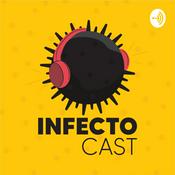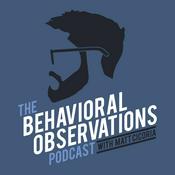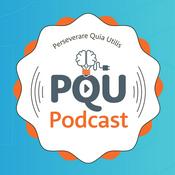162 episódios

138 | Addressing Rising Healthcare Costs in States
28/8/2025 | 53min
Rising healthcare costs in the U.S. threaten people’s access to treatment and services while reducing their ability to afford other necessities. Over the last decade, state policymakers across the political spectrum have responded to this urgent problem by passing legislation, setting up new government offices, and adding regulations to control healthcare spending. One critical element of states’ maturing strategies for addressing healthcare costs is high quality, timely, and accessible data. In the latest episode of Mathematica’s On the Evidence podcast, Jim Lloyd of the New Jersey Department of Health, Rachel Block of the Milbank Memorial Fund, and Julie Sonier of Mathematica discuss why rising healthcare costs present a complex and urgent issue, how states are responding, and the role of data in supporting solutions that address healthcare cost growth. “We have this healthcare system with much higher costs than other countries around the world, but we also have less access,” Lloyd explains. “There's an opportunity to be able to identify those costs that are contributing to quality, identify those costs that aren't, and then increase access and increase quality, potentially without increasing costs.” A blog summarizing the episode, with quotes from the guests and additional resources for further learning are available at https://mathematica.org/blogs/turning-data-into-solutions-for-reducing-healthcare-cost-growth-in-states

137 | Increasing the Resilience of African Smallholder Farmers
25/6/2025 | 36min
On the latest episode of Mathematica’s On the Evidence podcast, Dr. Agnes Kalibata reflects on her career as a scientist and as the former president of the Alliance for a Green Revolution in Africa (AGRA), an African-led organization that seeks to create an environment where Africa can sustainably feed itself. It does so by focusing on scaling agricultural innovations that help smallholder farmers achieve increased incomes, better livelihoods, and improved food security. Kalibata’s 10-year term as AGRA president ended earlier this year. She spoke with Mathematica President and Chief Executive Officer Paul Decker last December. Mathematica supports AGRA’s implementation of its 2023–2027 monitoring, evaluation, and learning strategy. On the episode, Kalibata and Decker discuss locally led development and the role of data in helping to understand how a program, such as AGRA’s Seed Systems, can be more effective. Find a full transcript of the conversation here: https://mathematica.org/blogs/increasing-the-resilience-of-african-smallholder-farmers Learn more about Mathematica’s work supporting AGRA as AGRA implements its 2023–2027 monitoring, evaluation, and learning strategy: https://mathematica.org/news/measuring-agras-impact-transforming-agricultural-systems-and-improving-climate-resilience

136 | How a Fintech Company Helps Workers in Africa Access Credit and Savings with Smartphones
26/2/2025 | 45min
On the latest episode of Mathematica’s On the Evidence podcast, M-KOPA Chief Executive Officer Jesse Moore talks about increasing access to financial and digital services for unbanked workers in Africa by leasing out smartphones. He and Paul Decker, the president and chief executive officer of Mathematica, discuss the needs of everyday earners in Africa who work regular but informal jobs that make it difficult to build credit and open a bank account. They also discuss the role of data in informing an organization’s business strategy as well as assessing its social impact on customers. Find a blog summarizing highlights from the conversation, plus the full transcript here: mathematica.org/blogs/how-a-fintech-company-helps-workers-in-africa-access-credit-and-savings-with-smartphones

135 | It’s the Evidence, Stupid: GAO’s Report on Evidence-Based Policymaking and What Comes Next
11/1/2025 | 52min
This episode features audio from an in-person roundtable discussion at the 2024 Association for Public Policy Analysis and Management Fall Research Conference. The roundtable focused on the five-year anniversary of the Foundations for Evidence-Based Policymaking Act (Evidence Act) and a recent report from the Government Accountability Office (GAO) on federal agencies' ability to assess their capacity to collect and use evidence. The panelists also discussed what needs to happen next to further strengthen the use of evidence in the federal government. The roundtable featured remarks from Erika Rissi, Nick Hart, Melinda Buntin, Rachel Snyderman, and Paul Decker. Rissi is the chief evaluation officer of the National Science Foundation, where she is also the Head of its Evaluation and Assessment Capability Section. Hart is the president and CEO of the Data Foundation. Buntin is a professor at the Johns Hopkins Bloomberg School of Public Health and the Carey Business School. Snyderman is the managing director of the Bipartisan Policy Center’s Economic Policy Program. Decker is the president and chief executive officer of Mathematica. You can also read a short blog by Decker summarizing key themes from the roundtable here: https://mathematica.org/blogs/advancing-and-enhancing-evidence-based-policymaking Listen to a past episode of On the Evidence featuring a discussion about the five-year anniversary of the Evidence Act with experts from government, think tanks, research organizations, and academia: https://mathematica.org/blogs/building-on-the-evidence-act-to-increase-the-positive-impact-of-federal-policymaking Listen to a past episode of On the Evidence featuring Robert Shea, an expert on performance improvement in government who served on the bipartisan U.S. Commission on Evidence-Based Policymaking, a group whose recommendations informed the Evidence Act: https://mathematica.org/blogs/robert-shea-on-the-federal-governments-progress-in-using-evidence-to-improve-programs-and-policies

134 | Modernizing State Public Health Data Policies and Practices
18/12/2024 | 56min
In the same way a doctor uses data to diagnose and treat a patient, states’ public health agencies use data to measure and address health in their communities. In the United States, states have the autonomy to decide their own data policies, which influences the amount, quality, and timeliness of public health data they produce. On the heels of the worst global pandemic in a century—and at a time when technology is significantly changing the way that information flows to public health agencies—a new report from the Pew Charitable Trusts offers a first-of-its-kind glimpse into the patchwork of state data policies and practices that together form our modern system for the nation’s public health data. The latest episode of Mathematica’s On the Evidence podcast features a discussion about the report’s implications with Lilly Kan of the Centers for Disease Control and Prevention, Annie Fine of the Council of State and Territorial Epidemiologists, Mary Beth Kurilo of the American Immunization Registry Association, and Monica Huang of Mathematica. A full transcript of the episode is available at mathematica.org/blogs/modernizing-state-public-health-data-policies-and-practices Read a blog by The Pew Charitable Trusts' Margaret Arneson and Kathy Talkington about key takeaways from the report: https://www.pewtrusts.org/en/research-and-analysis/articles/2024/12/12/states-must-modernize-public-health-data-reporting-new-report-finds-promising-practices Read the full report from the Pew Charitable Trusts, which was supported with research by Mathematica: https://www.pewtrusts.org/en/research-and-analysis/reports/2024/12/state-public-health-data-reporting-policies-and-practices-vary-widely Read a LinkedIn article from Kathy Talkington of The Pew Charitable Trusts discussing key takeaways from the report: https://www.linkedin.com/pulse/public-health-data-reporting-strengths-shortcomings-kathy-talkington-gcdne/?trackingId=qNW27JNuSXq2Uf67iWKD9g%3D%3D Take an online quiz to test how much you know about public health data reporting: https://www.pewtrusts.org/en/research-and-analysis/articles/2024/12/12/how-much-do-you-know-about-public-health-data-reporting
Mais podcasts de Ciência
Podcasts em tendência em Ciência
Sobre On the Evidence
Ouça On the Evidence, Ciência Sem Fim e muitos outros podcasts de todo o mundo com o aplicativo o radio.net

Obtenha o aplicativo gratuito radio.net
- Guardar rádios e podcasts favoritos
- Transmissão via Wi-Fi ou Bluetooth
- Carplay & Android Audo compatìvel
- E ainda mais funções
Obtenha o aplicativo gratuito radio.net
- Guardar rádios e podcasts favoritos
- Transmissão via Wi-Fi ou Bluetooth
- Carplay & Android Audo compatìvel
- E ainda mais funções


On the Evidence
baixe o aplicativo,
ouça.






































